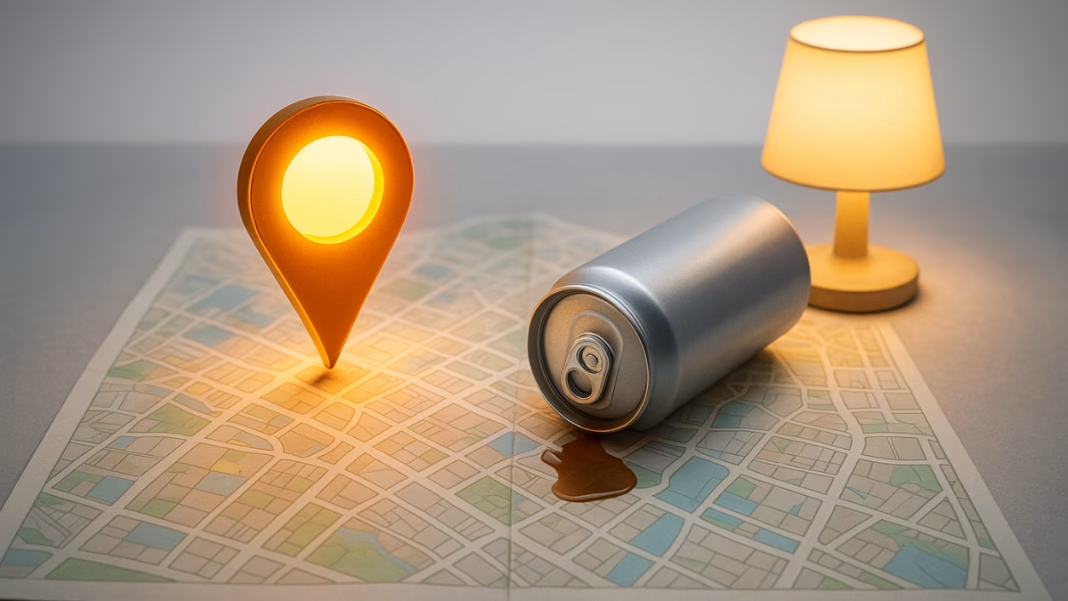Dementia cases are rising quickly in the United States, and health experts are concerned about the impact of modern lifestyle habits on our brains. One surprising habit under the spotlight is using GPS for every single trip.
A neurologist trained at leading medical centers has warned that depending too much on GPS can weaken the brain’s ability to remember places and directions. He also pointed out two other daily habits that could harm brain health over time — drinking too many energy drinks and sleeping with the lights on.
How GPS Can Weaken Your Brain
Dementia is not only a problem for older people. It can affect younger adults too. Alzheimer’s disease is the most common type, but there are many others. All forms of dementia affect memory, thinking, and the ability to do everyday tasks. With no cure available, experts say that protecting brain health early is very important.
GPS has made life easier by helping people find their way without getting lost. But there’s a hidden downside. The hippocampus, a part of the brain responsible for navigation and memory, works best when we actively use it. This means remembering routes, noticing landmarks, and figuring out directions on our own.
When people rely on GPS for every journey, their hippocampus does not get much exercise. Over time, this can make it less active. Studies show that regular GPS users have more trouble remembering routes without it. They also find it harder to picture the layout of an area or remember where certain places are located.
Research involving London taxi drivers, who learn complex city road networks from memory, revealed that they have larger and more active hippocampuses than the average person. This suggests that the more you challenge your brain with navigation, the stronger this part of the brain becomes.
Some scientists believe that when the hippocampus is kept active through mental “map-making,” it builds what is called cognitive reserve. This reserve may help the brain stay healthier for longer, even if other conditions, like dementia, develop later in life.
Why Too Many Energy Drinks Can Be Harmful
Energy drinks are popular with people who need a quick energy boost. They often contain high amounts of caffeine and sugar, which can make you feel alert for a short time. However, when consumed often, these drinks can put serious stress on the heart, blood vessels, and brain.
Cyberattack Catastrophe: How Hackers Can Endanger Human Lives ?
Too much caffeine can interfere with sleep, cause anxiety, and affect the brain’s chemical balance. The high sugar content can lead to spikes and crashes in energy levels, which over time may impact mood, memory, and focus. Experts say that the body and brain both work better when they are not constantly under this kind of pressure.
Many people see energy drinks as harmless because the effects are not immediate. But brain health can be slowly damaged by habits that cause long-term stress on the body. Limiting these drinks could be a simple way to protect memory and thinking ability.
The Problem With Sleeping in the Light
Light plays a big role in how the brain and body rest. The brain needs darkness to produce melatonin, the hormone that controls sleep cycles and supports brain repair at night. When people sleep with the TV on or lights in the room, melatonin levels can drop.
Cyber Attacks on Connected Cars
Without enough melatonin, sleep becomes lighter and less refreshing. Over time, this can affect mood, attention span, and memory. Experts say that deep sleep is when the brain clears waste products and strengthens connections between brain cells. Poor-quality sleep means these important processes may not happen fully.
Small changes, like turning off the lights and electronics before bed, can help the brain get the rest it needs. Even a small nightlight can sometimes reduce melatonin production, so darker environments are better for brain recovery.





